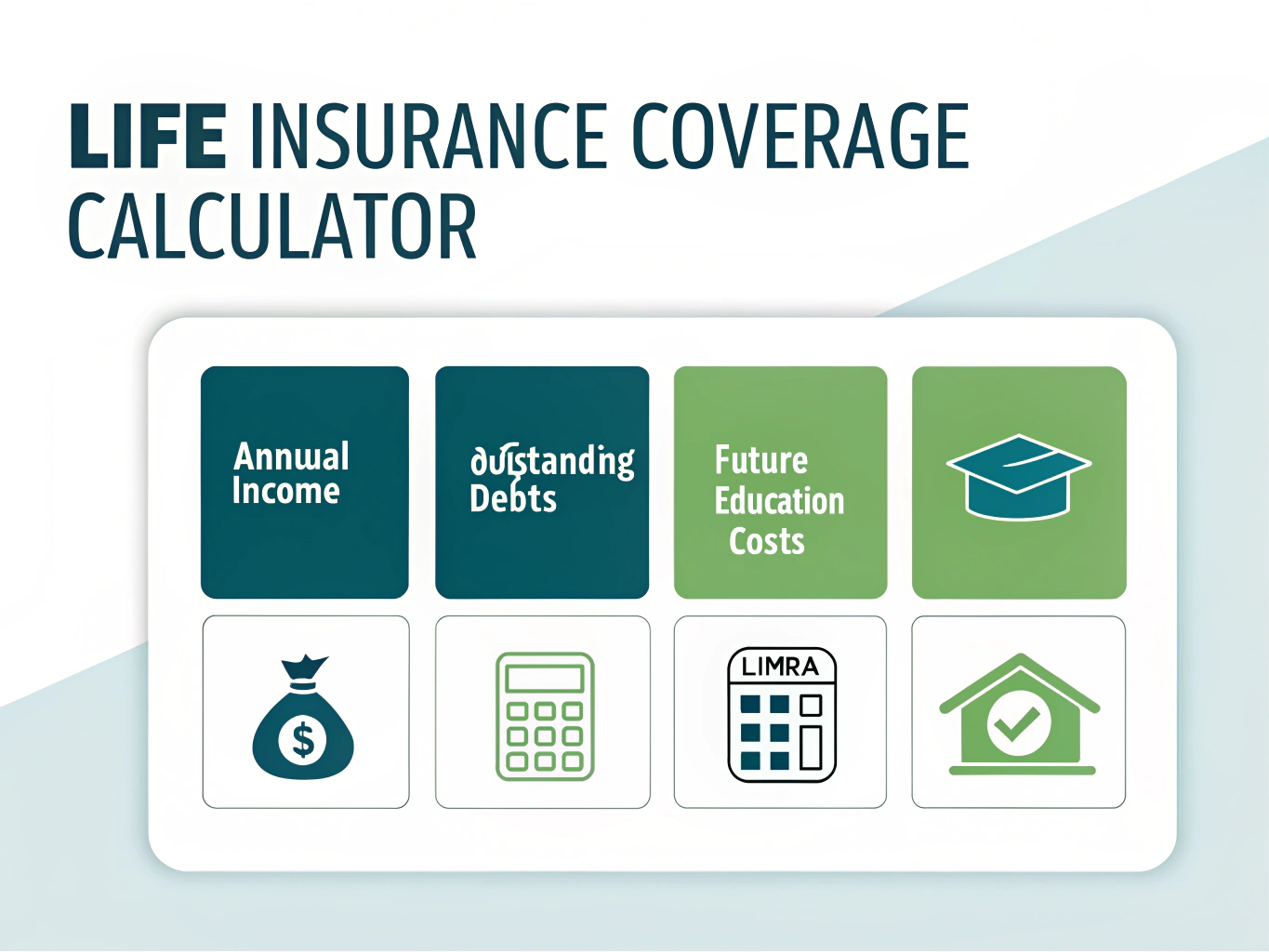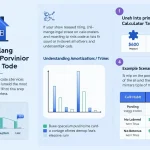Life Insurance Needs Calculator
Is this tool helpful?
How to Use the Life Insurance Needs Analyzer Effectively
The Life Insurance Needs Analyzer is designed with a straightforward interface that helps you calculate the optimal life insurance coverage for your specific situation. Here’s a detailed guide on using each field:
Input Fields Guide
- Annual Income: Enter your gross yearly income before taxes. For example, if you’re a teacher making $75,000 or a sales professional earning $92,000 annually, input these amounts without commas or dollar signs.
- Outstanding Debts: Include all current debts such as mortgage ($285,000), car loans ($35,000), student loans ($42,000), credit card balances, and other financial obligations.
- Future Education Costs: Calculate anticipated education expenses for dependents. Consider factors like private school ($25,000/year) or college tuition ($45,000/year per child) multiplied by the expected years of education.
- Liquid Assets: Sum up readily available financial resources, including savings accounts, certificates of deposit, stocks, bonds, and existing life insurance policies.
Understanding Life Insurance Coverage Calculation
The calculator uses the LIMRA (Life Insurance Marketing and Research Association) recommended formula to determine appropriate coverage:
$$ \text{Coverage} = 10 \times \text{Annual Income} + \text{Debts} + \text{Future Education Costs} – \text{Liquid Assets} $$Benefits of Using the Life Insurance Needs Analyzer
- Precise financial planning based on industry-standard calculations
- Comprehensive consideration of multiple financial factors
- Instant results for informed decision-making
- Customizable inputs for unique financial situations
- Clear visualization of insurance coverage requirements
Strategic Financial Planning
This analyzer serves as a crucial tool for long-term financial planning, helping you:
- Protect your family’s financial future
- Account for income replacement needs
- Plan for educational expenses
- Address outstanding debt obligations
- Consider existing financial resources
Real-World Applications and Examples
Example 1: Young Family Scenario
Consider Sarah, a software developer:
- Annual Income: $85,000
- Outstanding Debts: $320,000 (mortgage and car loan)
- Future Education Costs: $180,000 (two children)
- Liquid Assets: $75,000
Calculated Coverage: $1,275,000
Example 2: Mid-Career Professional
Consider Michael, a business consultant:
- Annual Income: $120,000
- Outstanding Debts: $450,000
- Future Education Costs: $250,000
- Liquid Assets: $200,000
Calculated Coverage: $1,700,000
Practical Applications and Use Cases
Family Financial Planning
The analyzer helps families determine adequate coverage by considering:
- Income replacement for surviving spouse
- Children’s future educational needs
- Mortgage and debt elimination
- Maintaining current lifestyle standards
Business Owner Considerations
Business owners can use this tool to:
- Protect business continuity
- Account for business debt obligations
- Plan for succession funding
- Secure key person insurance coverage
Frequently Asked Questions
Why is annual income multiplied by 10?
The 10x multiplier is an industry-standard recommendation that helps ensure your family can maintain their lifestyle for an extended period, accounting for inflation and potential investment returns.
Should I include bonus income in my annual income?
Yes, include all reliable sources of income, including regular bonuses, commissions, and overtime pay, to ensure comprehensive coverage calculation.
What qualifies as liquid assets?
Liquid assets include savings accounts, money market accounts, stocks, bonds, mutual funds, and existing life insurance policies that can be quickly converted to cash.
How often should I recalculate my insurance needs?
It’s recommended to reassess your insurance needs annually or after significant life events such as marriage, birth of a child, home purchase, or major career changes.
Should I include potential inheritance in liquid assets?
Generally, it’s better to exclude potential inheritance from liquid assets calculations, as these funds aren’t guaranteed or immediately accessible.
Can I adjust the coverage amount based on the calculator’s recommendation?
Yes, the calculator provides a baseline recommendation, but you can adjust the coverage based on specific circumstances, risk tolerance, and budget considerations.
Making the Most of Your Analysis
To maximize the benefit of your insurance needs analysis:
- Review and update your calculations annually
- Consider additional factors like inflation
- Account for future salary increases
- Plan for changing family needs
- Consult with financial professionals for personalized advice
Long-term Planning Considerations
When using the analyzer for long-term planning, consider:
- Career progression and income growth
- Changes in debt obligations
- Educational cost inflation
- Investment portfolio growth
- Retirement planning integration
Important Disclaimer
The calculations, results, and content provided by our tools are not guaranteed to be accurate, complete, or reliable. Users are responsible for verifying and interpreting the results. Our content and tools may contain errors, biases, or inconsistencies. We reserve the right to save inputs and outputs from our tools for the purposes of error debugging, bias identification, and performance improvement. External companies providing AI models used in our tools may also save and process data in accordance with their own policies. By using our tools, you consent to this data collection and processing. We reserve the right to limit the usage of our tools based on current usability factors. By using our tools, you acknowledge that you have read, understood, and agreed to this disclaimer. You accept the inherent risks and limitations associated with the use of our tools and services.







